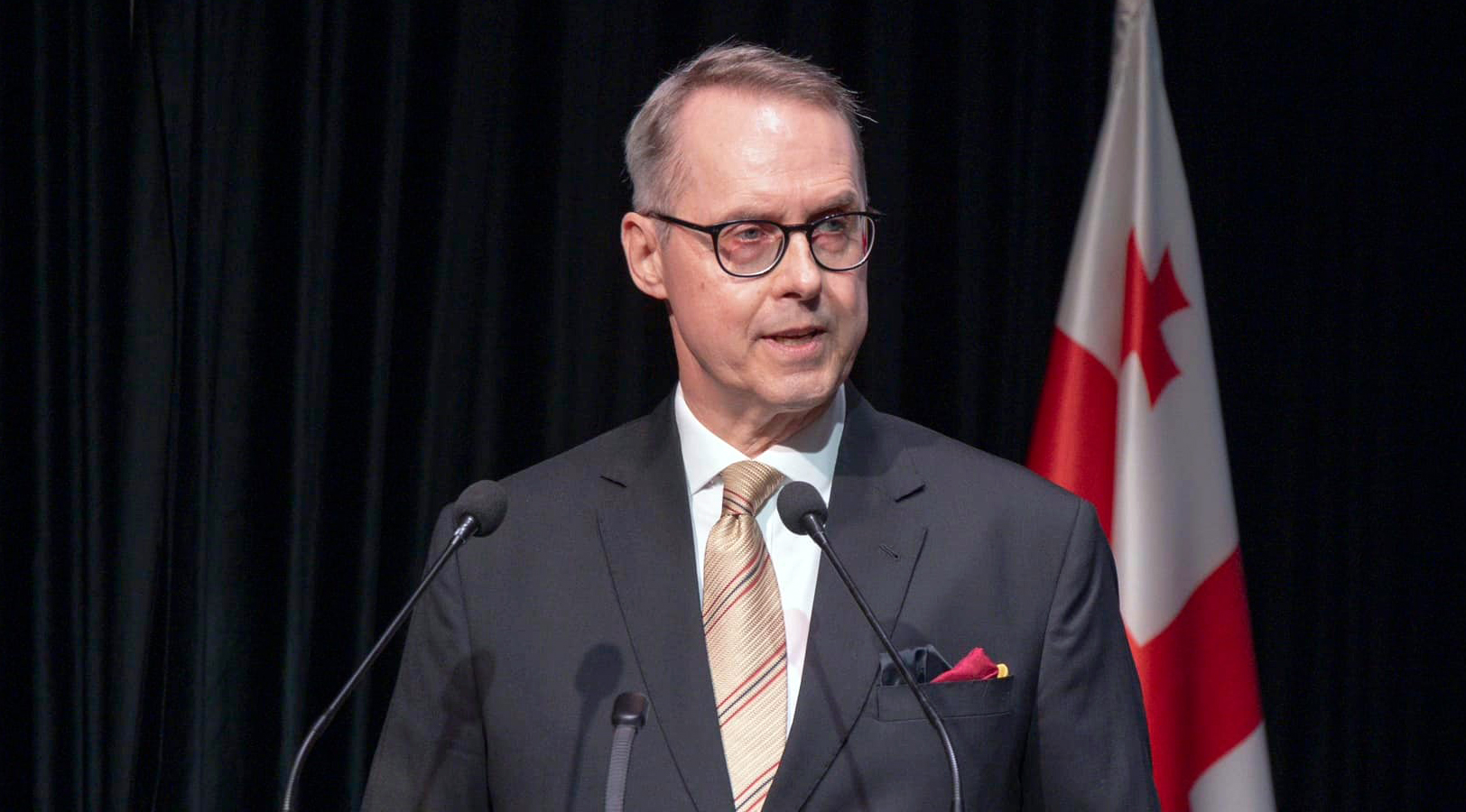The German ambassador to Georgia, Peter Fischer, stated that if the Russian Law on so-called Foreign Agents is adopted in its current form, Germany will not support opening negotiations on Georgia's accession to the European Union in December.
News
“Georgia has already deviated from the European path. There is a standard that candidate countries must meet, and this law falls below that standard. So, when we talk about the meeting of the European Council in December, if this law is adopted in its current form, Germany will not support the opening of accession negotiations [for Georgia], and this will push Georgia back on its European integration path. You have to meet the standard, otherwise you won't be able to get closer to the European Union,” said the ambassador.
A few days ago, German Chancellor Olaf Scholz and French President Emmanuel Macron issued a joint statement regarding the Russian Law. They expressed concern over the Georgian government's decision to deviate from the European path.
The Georgian Parliament adopted the Russian Law on so-called Foreign Agents in the third and final reading during the May 14 plenary session. 84 MPs supported it, while thirty were against it. The authorities ignored the warnings of international partners and the demands of ongoing mass protests in the country to unconditionally withdraw the law.
President Salome Zourabichvili vetoed the law, stating that it contradicts several articles of the Georgian Constitution. However, Georgian Dream plans to override her veto during the session week of May 27.
In the opinion of the Council of European Experts, it is impossible to substantiate that the Russian Law adopted by the Georgian Parliament complies with European and international standards. They argue that the legitimacy of the law's purpose is questionable, as there is nothing in its provisions to justify regulating certain entities solely based on their source of income rather than the nature of their activities.















